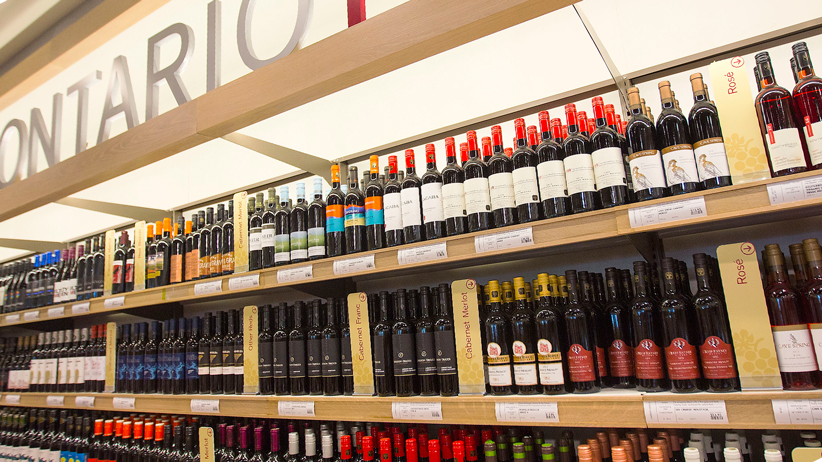Beer and wine in Ontario supermarkets a step sideways, not forward
The prospect of big chains being anointed purveyors is a continuation of the corporate hegemony that has traditionally dominated beer and wine sales in the province
Share
 With today’s news that Ontario will allow wine and beer to be sold in select supermarkets, the province appears to be hurtling boldly into the 20th century—at least, at first glance. “Liberalizing the distribution” is the catchy (and not at all partisan) phrase used to describe this development, one that represents less a freeing-up of access to beer and wine than an extension of the institutional grip with which it’s sold.
With today’s news that Ontario will allow wine and beer to be sold in select supermarkets, the province appears to be hurtling boldly into the 20th century—at least, at first glance. “Liberalizing the distribution” is the catchy (and not at all partisan) phrase used to describe this development, one that represents less a freeing-up of access to beer and wine than an extension of the institutional grip with which it’s sold.
Details will be released during the provincial budget. What is known is that hundreds of large supermarkets (read: Loblaw Companies, Wal-Mart, Sobeys) will be able to sell imported and Canadian wine and craft beer in its own section, like deli or snack food, which is a big win for them. Anyone familiar with the business end of supermarkets, a cutthroat industry that succeeds on volumes, shelving fees and predictable distribution networks, can see how this will play out for consumers: They’ll have no problem buying a bottle of Casella’s Yellow Tail; those looking for smaller, local producers—say, Pearl Morrisette or Thomas Bachelder—will be out of luck. Yes, these wines will still be accessible via the LCBO, which will, true to the province’s Presbyterian roots, retain its monopoly over hard liquor. And, given the LCBO’s 90-year monopoly on liquor supply, alongside the foreign-owned Beer Store, the prospect of being able to pick up a bottle or six-pack at the supermarket—as citizens of most civilized countries can do—is unquestionably a convenience for those who shop at major supermarkets. But the prospect of select chains being anointed purveyors, as opposed to independent operators or even farmers’ markets, is little more than a continuation of the corporate hegemony that has traditionally dominated wine and beer sales in the province.
Ontario supermarkets have sold wine for years, of course—albeit an absurdly limited selection in separate kiosks, an arrangement that dates to a negotiation between the government and then-big players such as Château-Gai in 1975 as a concession when Inniskillin obtained the first boutique-winery licence. As compensation, the government allowed the wine establishment to set up free-standing stores to sell product; it also bestowed the “cellared-in-Canada” designation, which is veiled code for the fact that the wine includes imported juice. It’s a system that puts small producers at a disadvantage: They’re stuck selling via their tasting rooms, or selectively at the LCBO.
Predictably, today’s news has been met with reaction that’s all over the map. The Ontario Public Service Employees Union, which represents LCBO employees, is not happy, arguing the development will result in a variety of social ills, including increased violence against women. The wine community is also divided. “It’s about time,” says veteran wine writer Tony Aspler, author of Canadian Wineries. “Anything that extends the possibility of people enjoying wine is a good thing.” He expresses hope that supermarkets will be able to provide more hospitable storage conditions than he has seen at depanneurs in Quebec (Premier Wynne has announced that corner-store sales in Ontario are off the table): “The wine there often ends up oxidized.” The new arrangement is definitely stacked to benefit the big players, Aspler notes: “Smaller Ontario wines will have difficulty competing in the new setup because of their pricing; as a result, you’ll likely see mostly non-VQA wines.” Aspler also predicts an onslaught of those patronizing “femme-friendly” wines in response to the fact that women do most of the grocery shopping: “We’ll see more Girls Night Out-type labels, as well as wines with more graphic labelling.”
Konrad Ejbich, author of A Pocket Guide to Ontario Wines, Wineries, Vineyards & Vines, is less sanguine. He was optimistic when the government said it was reviewing the alcohol distribution system to make it fairer. However, selling it at major chains is just another form of business shakedown, Ejbich says: “The government is looking for a revenue tool, as opposed to looking at a fair way of redistributing wine,” he says. “The ordinary citizen should have a right to open a store to sell wine, beer and spirits.”
Aspler expects the existing monopoly spirit to prevail: “We’ll have to see if the LCBO will allow discounting of wines,” he says, something he finds unlikely. “We probably won’t see any bargains.” Whether store staff will be educated to help shoppers decide whether a riesling or a gewürztraminer will pair better with, say, President’s Choice Indian Korma Cooking Sauce is another question. So is which retailers stand to benefit most from the province’s change of heart. Predictably, the Beer Store, run by Labatt, Molson-Coors and Sleeman, appears displeased about the end of its monopoly. As the Toronto Star reported, its representatives were conspicuously absent from a recent provincial Liberal party fundraiser. Very much in attendance, however, were executives from Loblaw, which just announced a $1.2-billion expansion, alongside top brass from their Shoppers Drug Mart subsidiary, which has moved big-time into grocery sales. Which raises another prospect: whether Ontario residents will one day be offered the synergistic opportunity to buy a bottle of plonk at the same time they stock up on morning-after Advil at Shoppers, a chain now more ubiquitous in the province than 7-Eleven. Just one more question that awaits answering.